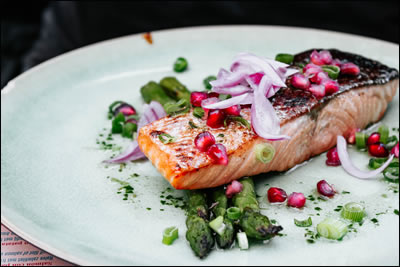Why do you need fat in your diet?

Your body needs dietary fat for many biological processes. You wouldn't be able to live a healthy life without it. Here are some of the essential roles dietary fat plays in your body:
Helps you absorb vitamins. Vitamins A, D, E, and K are fat-soluble, meaning your body can absorb them only when you consume them along with fat. A lack of fat in your diet can cause deficiencies in these vitamins, which can lead to a variety of health issues.
Supports cell growth. Fat provides structure to the outer membrane of every cell in your body.
Supports brain and eye health. The omega-3 fatty acids eicosapentaenoic acid (EPA) and docosahexaenoic acid (DHA) help maintain the health of your brain, central nervous system, and retinas. Your body doesn't make these fatty acids - you can only get them from your diet.
Wound healing. Essential fatty acids play a key role in wound healing and blood clotting.
Hormone production. Your body needs dietary fat in order to make specific hormones, including the sex hormones testosterone and estrogen.
Source of energy. Each gram of fat you consume provides you with about 9 calories of energy. For comparison, each gram of carbohydrate or protein yields only 4 calories of energy.
Types of fat
Not all fats are equal. Trans fats are something you should avoid altogether. They are generally found in processed and fried foods.
Saturated fat is found mainly in animal products. Try to limit your intake of this type of fat to 10% of daily calorie intake.
Unsaturated fats are the healthiest kind and can help protect you against heart disease. Sources include oily fish (salmon, trout), olive oil, nuts and avocaodoes.
In Summary...
Despite being demonised, fat is an essential part of the diet. Just make sure you're getting enough of the right kind of fat.

